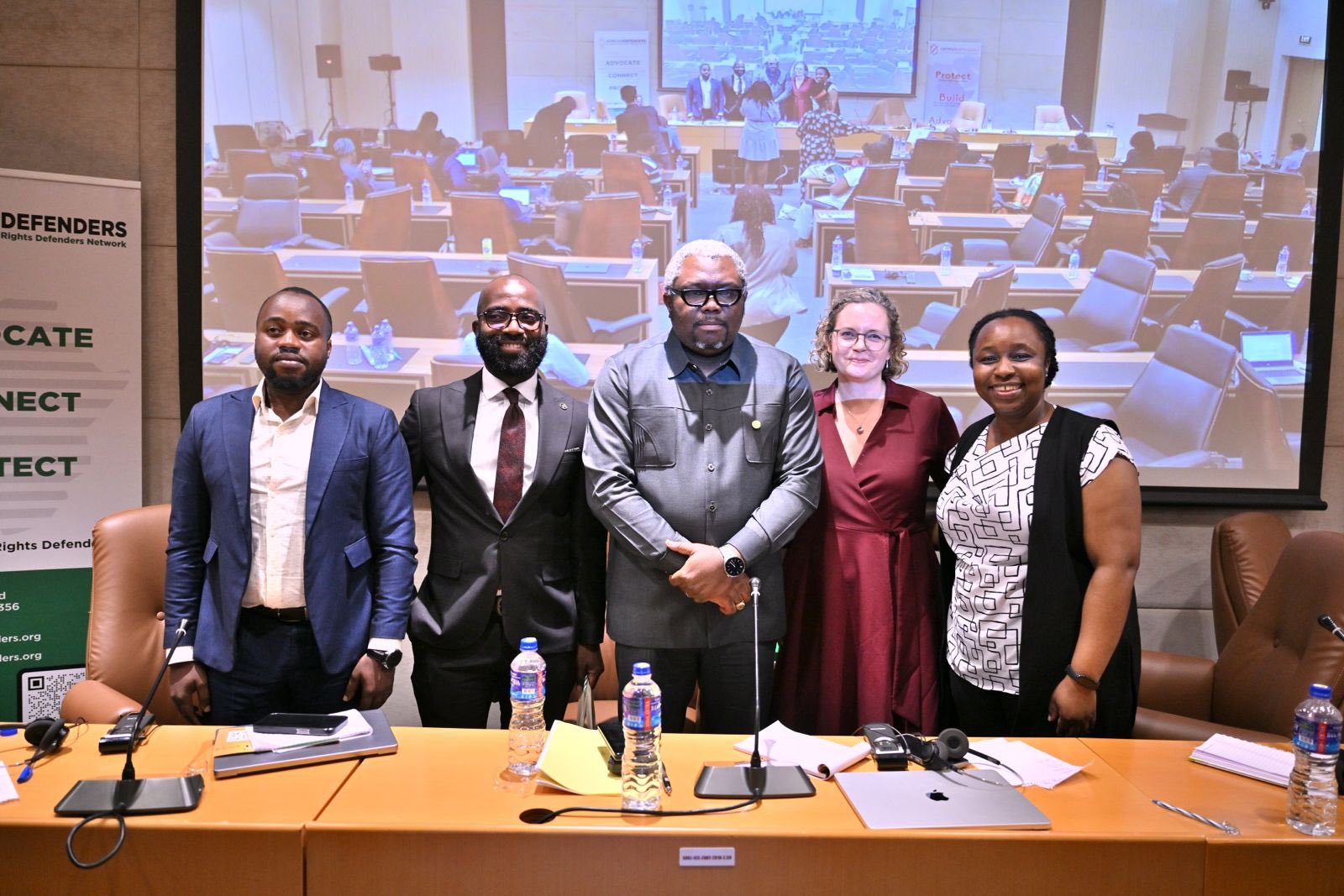On 16 October 2024, ISHR co-hosted, as part of the Environmental Rights Agreement (ERA) Coalition, a side event on the margins of the 81st Ordinary Session of the African Commission on Human and Peoples’ Rights on advancing environmental rights in Africa.
The initiative aims to advocate for the adoption of an instrument that further develops environmental rights by considering recent developments, issues, and risks those who defend the environment and climate face. This event is a continuation of discussions that started in 2023 in Arusha during the Commission’s 77th session, during which participants agreed such an instrument would strengthen the legal protection of environmental rights in Africa.
Threats and challenges
Environmental rights defenders face several threats to their lives and safety on the continent. In his presentation, Brighton Aryampa explained how defenders advocating against the East African Crude and Oil Project, in Uganda, are arbitrarily arrested and detained and face politically-driven charges to discourage them from conducting their advocacy. The government and its allies have mounted Strategic Lawsuits Against Public Participation (SLAPPs) which have increased fears among defenders and may in the long run perpetuate environmentally unfriendly policies and projects as defenders will fear to speak out. Individuals rarely have access to information related to these projects and are not meaningfully consulted whenever such projects are undertaken. The African Commission approached Uganda through a letter of appeal to get more clarity on the allegations defenders made on the ground.
A normative protocol as a response?
The promotion of an African regional framework could advance environmental protection in a way that is sustainable, contextualised and applicable to the African context.
It could also provide greater protection for defenders and improve corporate accountability for environmental rights violations. Five normative protocols have thus far developed areas in the Charter, which were inadequately or not at all incorporated at the time of its drafting and adoption in 1981. The normative basis for adopting supplementary protocols to the Charter and the African Union’s consistent practice to that effect is a sign that environmental rights could be better advanced within the African human rights system, similarly.
A study as a way forward
The African Commission is an important body that, based on its consistent practice, can initiate the process of drafting this Protocol. It can draw inspiration from the European and American regions.
However, given that the African Commission’s practice requires a study that precedes the development of such a framework, the ERA Coalition introduced a draft resolution the Commission could adopt to swiftly conduct a study to consider developing further normative standards on the protection and promotion of environmental rights in Africa.




